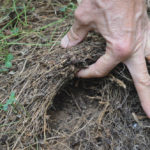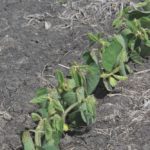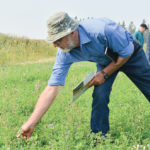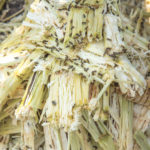Tag Archives Biology

Protecting plants from winter damage
You’ll be glad you did when you see healthy plants come back in the spring

Manitoba Organic Alliance names agronomist
Katherine Stanley will take on the term position over the next year

Night of the living mulch
It’s more fairy tale than horror story, according to researchers studying the technique

Arkansas moving closer to in-crop dicamba restrictions
Its plant board wants an April 15 to Oct. 31 ban to prevent injury to crops from drift

Broadcasting nitrogen in fall least efficient approach
It’s also the least environmentally friendly

Pollinator seed mixes tailor made
Just like cattle and hogs benefit from the right rations, bees can benefit from the right mix of flowering plants

Rapid detection of meat fraud
Spanish researchers say a new biosensor can give test results within an hour
Health Canada had no herbicide drift complaints from Manitoba
That includes the herbicide dicamba, which has triggered many drift complaints in the U.S.

The making of a green manure mix
Grain-only operation one of several tours organized by the Manitoba Organic Alliance

Cell wall secrets could unlock plant potential
U.K. researchers say figuring this puzzle out could improve hunt for traits


